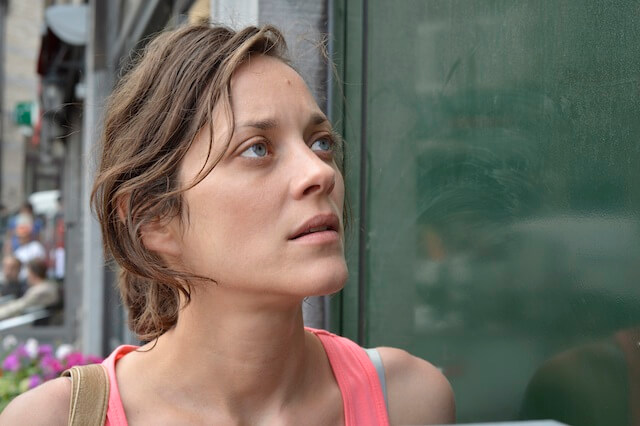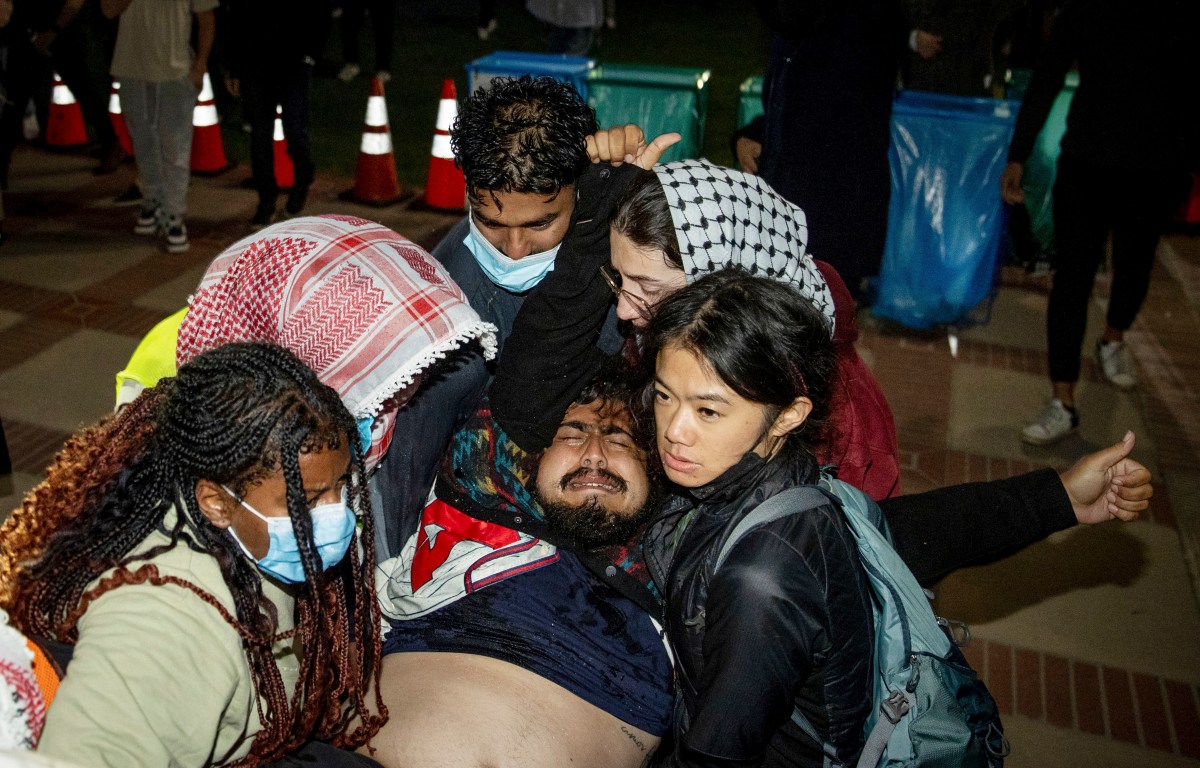‘Two Days, One Night’ Few artists are as reliably samey as Belgium’s Jean-Pierre and Luc Dardenne, social realists who every three years, almost to the day, release an acutely observed drama steeped in ethics. Each film (“Rosetta,” “Lorna’s Silence,” “The Kid with a Bike”) concerns the working class, and sometimes the petit-bourgeois. Each feature is deceptively simple, filmed in hand-held that allows its best scenes to unfold in hair-raising long takes. And each make the argument that if these brothers would ever think to do an actual thriller, leaving the realm of quietly thrilling dramas even just once, they would make the best ones in decades. Their films as is are already more nerve-wracking than most films that actively seek to wrack nerves. What makes their latest missive, “Two Days, One Night,” slightly better than their usual lot? It’s hard to tell. It’s not just the presence of an A-list actor at the helm. Marion Cotillard effortlessly slips into their world of unglamorous everyday folk in the Dardennes’ industrial hometown of Seraing. She’s Sandra, who’s about to return from medical leave to her job at a solar panel factory. Instead she’s informed that there may be no job to return to. Budget cuts have necessitated a slash that means one of two things has to go: Sandra’s position or all the worker’s annual bonuses. The powers-that-be have decided to place that burden on the workers themselves, who are to meet after the weekend to vote on which one to pick. The majority of “Two Days, One Night” finds Sandra, still reeling from a nervous breakdown, fighting to keep a job she may not even like but which she nonetheless needs. She carts herself from residence to residence, ready to humiliate herself by begging each employee to forfeit their bonuses and keep her on. She doesn’t have much of an argument; she can just prey on their sense of solidarity, hoping they ignore that the bonuses tend to be important parts of their annual income. Of course, she herself has to ignore this too. Neither choice is ideal, and it doesn’t take too long for Sandra to succumb to guilt over asking people barely able to squeak to be possibly self-destructively selfless, just for her. Making matters worse is Sandra’s own psychological condition. She’s prone to panic attacks and serious migraines — neither helped by having to brave one confrontation after another: some peaceful and warm, others various degrees of hostile. One coworker responds with violence; another does a bad job at pretending not to be home. Some are new to Belgium and would be putting themselves at risk to vote for Sandra. Each meet-up is different, and each is a master class in how to find various ways to milk tension out of a tete-a-tete. It’s not clear how each conversation is going to go, and even if they end up rallying to her side, there’s a great degree of sacrifice. There’s never a clear right answer in the Dardennes’ films, and most definitely not here. In fact, what may make “Two Days, One Night” the best film the Dardennes have yet made — which, it should be noted, is saying something — may be the emotional directness of Cotillard’s performance. Their protagonists tend to be remote, stubbornly resisting help, sometimes even sociopathic. (The hero of “Rosetta” backstabbed the man helping her, while the father from “The Child” put his baby on the black market.) Sandra can be remote too; she gets angry with her husband (Fabrizio Rongione) not because he isn’t supportive but because he is, visibly irritated that he’s wasting his affections on someone so weak. But Cotillard can’t help but be vulnerable; as in “The Immigrant,” her eyes betray the despair she won’t put into words. Hers is a full-bodied performance, as she drags herself, internally kicking and screaming, from one potential conflict after another, all the while not even sure if she’s doing the right thing.
Directors: Jean-Pierre and Luc Dardenne
Stars: Marion Cotillard, Fabrizio Rongione
Rating: NR
5 (out of 5) Globes
Review: ‘Two Days, One Night’ is an even better Dardennes film than usual

IFC Films
Follow Matt Prigge on Twitter @mattprigge


















